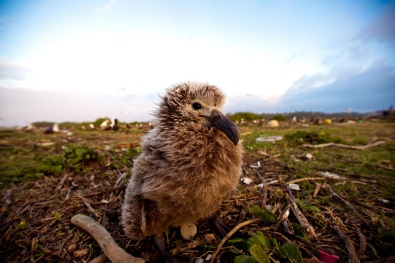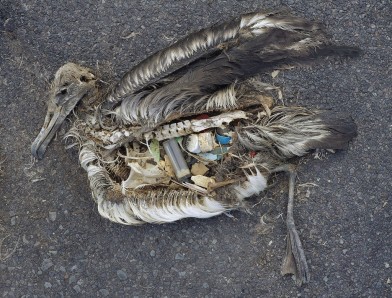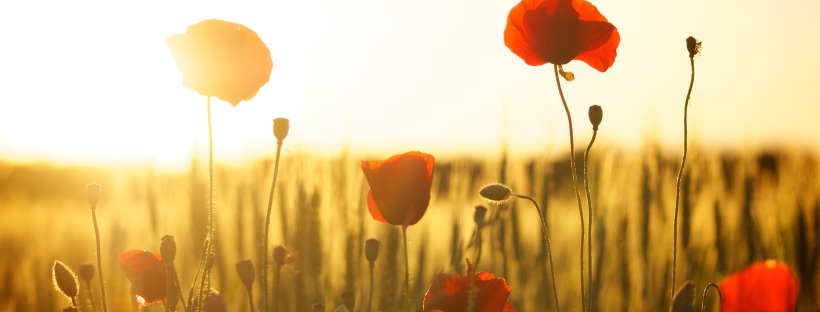It is the time of year when The Royal British Legion has volunteers out in force, selling plastic stemmed poppies to passers by to raise money in support of those in need within the Armed Forces and to remind people to remember all of those who have fallen, are active or been injured as a result of war.
But in light of the plastic pollution crisis, does the Royal British Legion need to rethink the design of the plastic and paper poppy, and how can we show support this year with plastic free poppy alternatives?
The meaning behind the poppy
It all began in 1921 to help veterans find employment and housing after the First World War and since then it has grown year on year.
The poppy was one of the only flowers to grow on the otherwise empty and barren battlefields of WWI after the war and it’s significance as a symbol of remembrance was inspired by the WWI poem ‘In Flander’s Fields’, which describes their abundance. It has since been adopted by many nations, especially in the run up to Armistice Day.
For many who choose to wear them (I am aware that some disagree, but I am not here to discuss this) they are a symbol of something that is close to many peoples hearts. Aside from this, they provide the greatest amount of funds for The Royal British Legion charity, to ensure they can keep providing support to members and families of the Armed Forces who need it.
And so, every year, like many, I have worn a poppy to support those in need and as a reminder to remember anyone who has been a victim of conflict.
Last year though, I thought to myself that I should wait this time round and buy one closer to Armistice Day, simply because I usually find that I lose them and end up buying several.
And that is when it struck me, the plastic pollution problem with poppies.
You see I can’t be the only one getting home at the end of the day and staring down at an empty metal pin on my coat, with no poppy in sight. It’s frustrating, losing them, it means buying a new one, but really, that’s not the worst of it.
If lots of people are losing them, it stands to reason that the plastic attached to them is not making its way to a recycling bin and is instead, most likely, littering the streets and eventually of course, making its way down drains where it will pollute our beautiful rivers and oceans.
Sadly, pieces of plastic like the centre of the poppy and the stalk are very likely to become one of the many pieces of plastic that foraging seabirds mistake for food.
One of the most tragic examples of this that we know of is in the Midway Islands, located in the middle of the Pacific Ocean and around 2000 miles from the nearest continent. Here, nesting albatross colonies forage for food to feed their chicks, unaware that the plastic items they mistake for marine life will eventually lead to the starvation of their chicks.

An albatross chick surrounded by litter

The stomach contents of a dead albatross chick
If you haven’t seen them already, I recommend watching the videos below to see for yourself the true extent of the problem. I don’t know how anyone can watch them and not be moved.
Look out for plastic water bottle on the plane journey in the above video, it would be nice if they could practice what they preach.
If you are already aware of the issue, or you have just watched the video, you will know why it now concerns me so much that, every year, so many of these black and green pieces of plastic poppies will likely end up in the oceans to act as bird food.
How do we make poppies ‘green’?
Well, I am certainly not suggesting that we stop with the tradition of the poppy, but there are ways to celebrate remembrance day that are more environmentally friendly and still provide support to the Royal British Legion.
First off, I would like point out that you can recycle used paper and plastic poppies. In fact Sainsbury’s will collect used poppies for either reuse or recycling, which is great. So if you do find that you have one that you need to get rid of, please remember this and dispose of them responsibly. Unfortunately, this doesn’t quite solve the issue of the ones that inevitably drop off your coat and get lost.
So, for those of you who have not yet bought your poppy, or as an idea for next year for those who have, why not purchase a poppy pin instead?

They last year on year, do not contain plastic and the reliable pin clasp will make sure you don’t end up looking down to see a metal pin in your coat and no poppy.
The variety of metal pins and brooches is vast and the online Royal British Legion poppy shop has them all available to purchase.
The down side of course is that The Royal British Legion may see a dip in the number of individual poppy sales if we all took to doing this. However, the cost of these alternatives is greater, so it shouldn’t affect their fundraising and there is nothing to stop you from still donating year on year should the cause be important to you, just drop a pound or more into one of the many collection tins!
Alternatively, you can donate £3 via text message or easily set up a regular donation, be it monthly or annually, on their web page.
Personally, and perhaps you could do this too, I plan to write a letter to the Royal British Legion to see if they think it is feasible to investigate the option of using a poppy made entirely of paper. I will update the post with the outcome of this once I can.
I hope this has helped to shed a little light on an issue many of us probably don’t even think about and provided some useful alternatives too. If you have any of your own thoughts around how to make the poppy more ‘green’, please feel free to comment.


I thought we all were trying to move towards the end of single use plastic.
However, can you imagine how much plastic has been created for the 100 year anniversary with large plastic poppies on lamp posts popping up everywhere around Nottinghamshire.
Something you will find lying in a landfill in 100 years more from now.
LikeLike
Agreed Phil, more thought needs to go into these things these days. I remember seeing poppy’ s on the ground last year and just thinking, great, yet more small plastic pieces for birds to eat or nest with. I will be sharing this article again shortly to hopefully spread the word a little further!
LikeLike
Hi
I was wondering if its possible to get a green poppy, leaves and flower also green as remembrance for Irish troops that died in the wars in action in the British Army.
My Grand Mother’s brother served in North Africa, Italy and Europe in the Second World War. He returned home to Ireland but never really recovered, and died a young man.
It does make sense to have an environmentally friendlier approach to the use of plastics, for poppies and all other items.
George
LikeLike
Hello George, apologies for the late reply to your message. I’m not sure whether it is possible to get green poppies, I imagine as the poppy is supposed to be a symbol for all of those who die in conflicts, that by changing its colour for different groups of people would defeat this purpose? And yes, hopefully one day we will see a future where single use plastic items like these are not so common.
LikeLike
It’s definitely a concern, these small peices of plastic are not likely to be recycled even if they are put in your household recycling bins, plastic waste is crushed and bound into bales so small peices tend to drop out and will just end up in landfill or worse, in our waterways eventually ending up in the ocean.
LikeLike
Do you have an update on this now? It’s still a very relevant concern that doesn’t appear to have been addressed.
LikeLike
Hi Roxanna, unfortunately I don’t. Personally I have bought a reusable metal pin and I will continue to spread the word that the paper poppies can be returned to stores, but it certainly doesn’t solve the issue of all those that end up fallen on the streets. I have been very preoccupied with a new arrival to the household these past few months but thank you for bringing this back to my attention. It would be good to try and get in touch with the Royal British Legion and see what they say.
LikeLike
Please start a campaign for us to sign & send to the British Legion on this topic
LikeLike
Great idea Angela, I will look into this tomorrow!
LikeLike
I work in a school – What are the wrist bands and snap band (ruler thingies) – both sold in multiple colours – made of? They are the biggest sellers in my school with some children buying all the colours to ‘complete’ their collection every year. It’s upsetting to see – even though it’s for a good cause. I made a one per child suggestion for next year as is seems exploitative, wasteful and of course it’s plastic landfill waiting to happen, but it fell on deaf ears this lunchtime in the staff room, sending me to the internet to see if it bothers anyone else … and I found you.
LikeLiked by 1 person
Hi Claire, thanks for messaging. It’s great that you are at least raising questions. It’s also something new you have brought to my attention. As far as I can tell, the outer part of these bands can be made of fabric, silicone or plastic…PVC or vinyl. PVC is actually an awful plastic that I have discovered is in many things whilst searching for plastic free baby things (changing mats for one). Even without the landfill argument, the production of these plastics is hugely harmful and the plastic itself contains toxins like phlalates and lead. It often feels like you are being the fun police when you bring these things up, we have spent so long assuming the safety of things that it seems hard for people to question it. Most assume it is probably ok still. As they’re so popular with the kids there is another battle there too. Maybe an assembly where you could ask a few select students to present the facts about waste and focus on these bands. Then invite students to come up with their own more eco friendly collectable ideas for charity? They could make their own bands and sell them for charity for example? Giving students the facts and then the means to provide change might surprise a lot of people 😊
LikeLike
to me the answer seems simple, use REAL poppies pressed and preserved if they are lost the natural process is they will bio degrade just as they would in nature
LikeLike
This is a good point, it would be a great way to also encourage the growth of more wildflowers like poppies in our fields, but I’m not sure if the harvesting efforts and mass pressing and preserving of the poppies would equal fewer emissions than having one for life. Definitely something to explore.
LikeLike